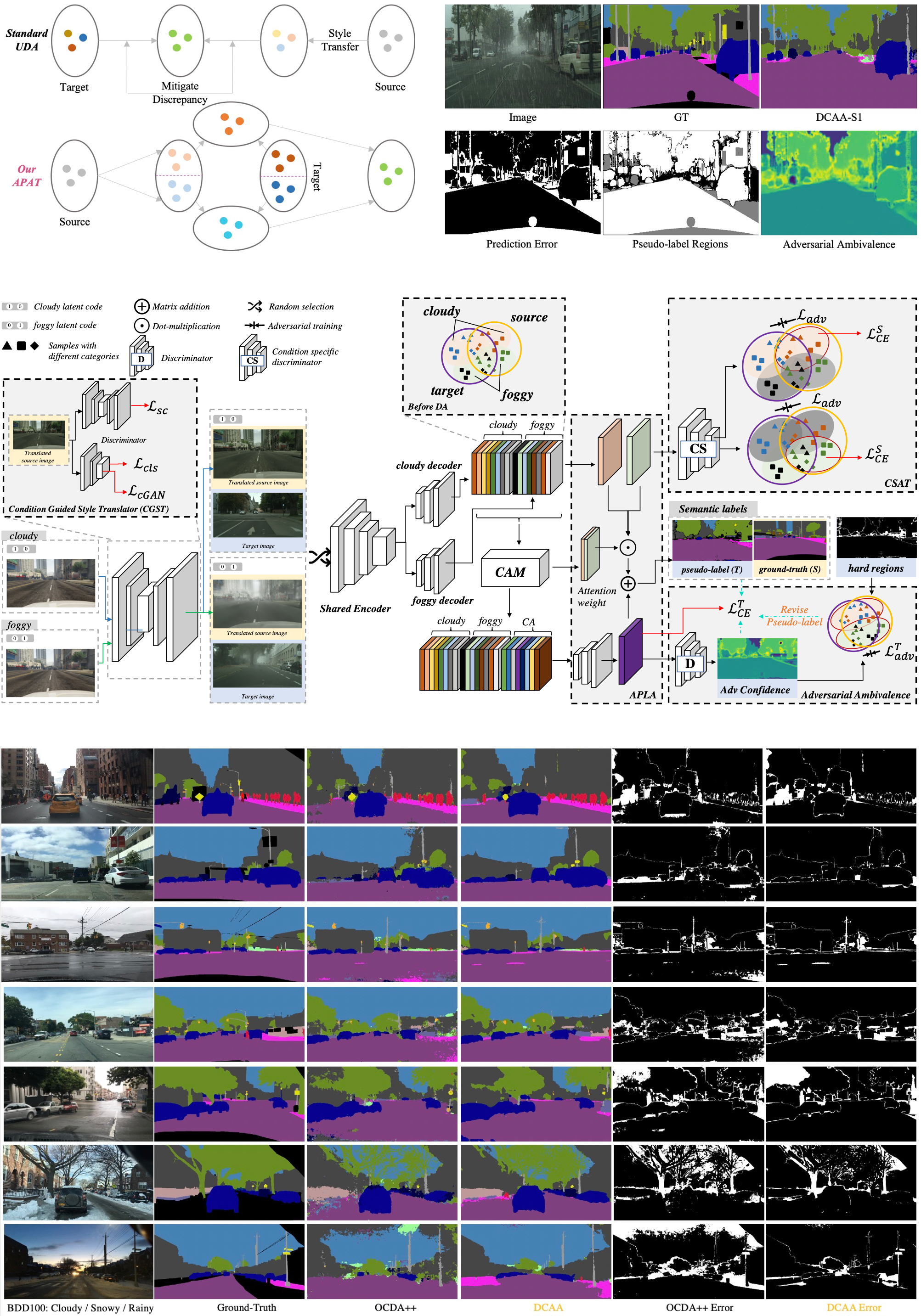Exploiting Diverse Characteristics and Adversarial Ambivalence for Domain Adaptive Segmentation
Adapting semantic segmentation models to new domains is an important but challenging problem. Recently enlightening progress has been made, but the performance of existing methods are unsatisfactory on real datasets where the new target domain comprises of heterogeneous sub-domains (e.g., diverse weather characteristics). We point out that carefully reasoning about the multiple modalities in the target domain can improve the robustness of adaptation models. To this end, we propose a condition-guided adaptation framework that is empowered by a special attentive progressive adversarial training (APAT) mechanism and a novel self-training policy. The APAT strategy progressively performs condition-specific alignment and attentive global feature matching. The new self-training scheme exploits the adversarial ambivalences of easy and hard adaptation regions and the correlations among target sub-domains effectively. We evaluate our method (DCAA) on various adaptation scenarios where the target images vary in weather conditions. The comparisons against baselines and the state-of-the-art approaches demonstrate the superiority of DCAA over the competitors.
PDF Abstract


 Cityscapes
Cityscapes
 SYNTHIA
SYNTHIA
 GTA5
GTA5
 BDD100K
BDD100K